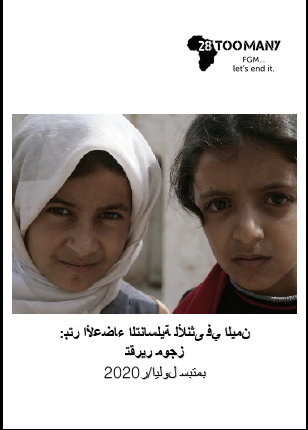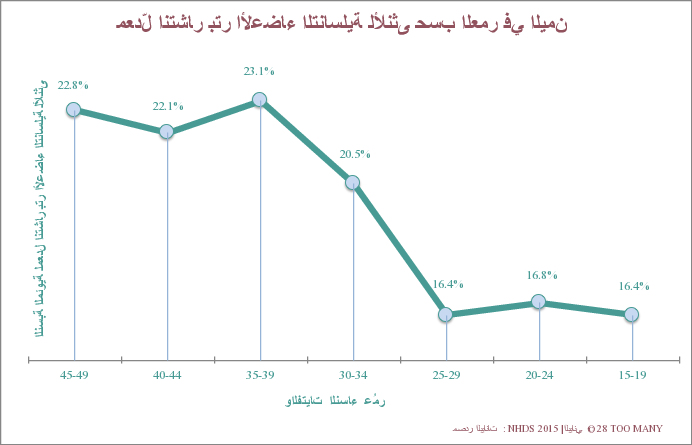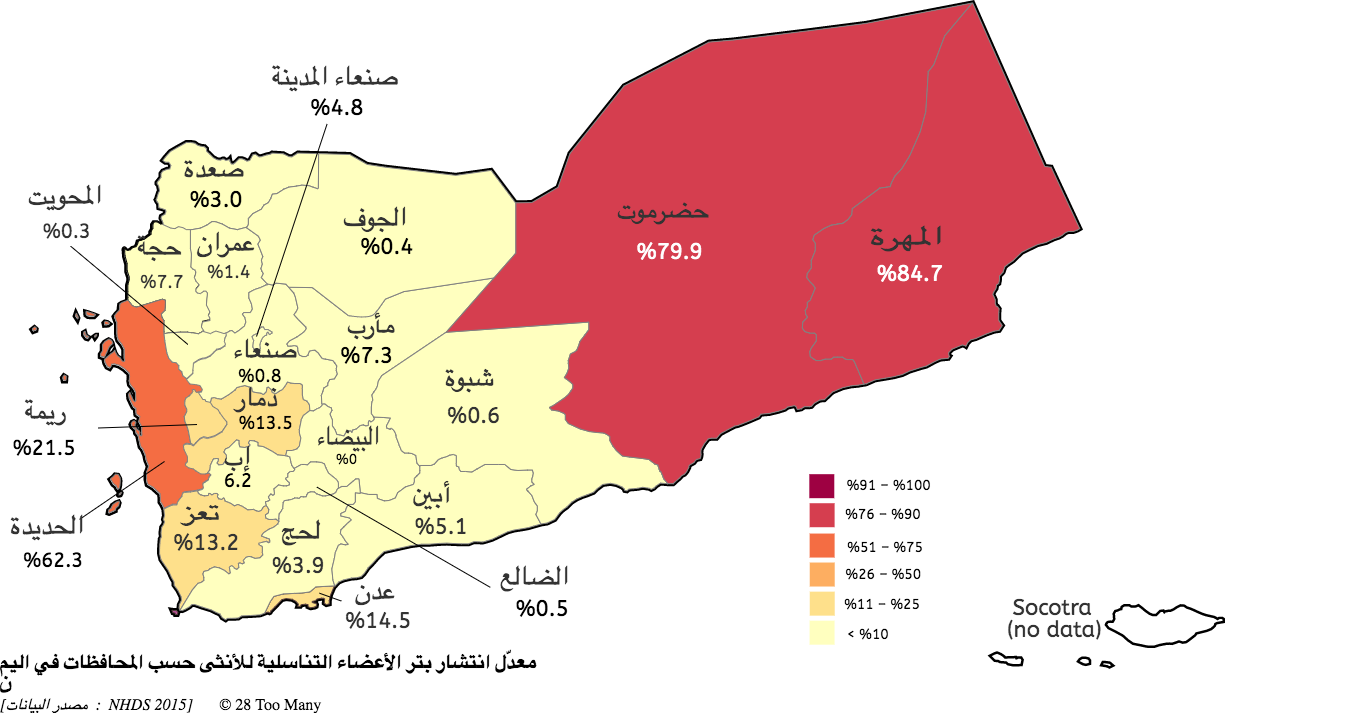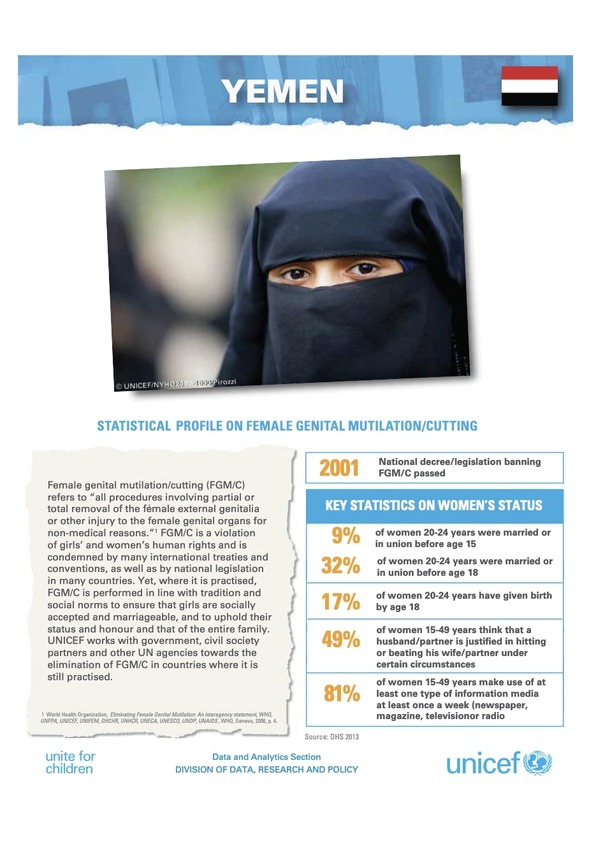Home | Research & Resources | Yemen
Key Findings
The prevalence of FGM/C among women aged 15–49 in Yemen is 18.5%.
75.4% of women aged 15–49 believe that FGM should be discontinued.
Geography
The governorates of Yemen with the highest prevalence are in the east of the country, particularly Al-Mhrah and Hadramout
Age
83.8% of women who have had FGM/C were cut in the first week after birth
Type
‘Cut, flesh removed’ is the most common type of FGM/C practised
Agent
92.8% of women aged 15–49 were cut by traditional practitioners
Distribution of FGM/C across Yemen
Two of Yemen’s governorates (Al-Mhrah and Hadramout) have an FGM/C prevalence of 80% or higher, and both are in the far east of the country. Prevalence at the governorate level ranges from less than 1% (Al-Baidha, Al-Jawf, Sana’a, Al-Mhweit and Aldhalae) to 84.7% (Al-Mhrah). It should be noted that some of the data at governorate level is based on a small number of women and should be interpreted with caution.
There is little difference between the prevalence in urban (17.1%) and rural (19.2%) areas. Women with no formal education or only a basic education are more likely to have been cut than women with a secondary or higher level of education.
Women in the lowest wealth quintile are more likely to have been cut (26.5%) than those in the highest wealth quintile (14%). However, across the five wealth quintiles there is not a straightforward trend.
Trends in FGM/C Prevalence in Yemen
Measurements of FGM/C prevalence prior to 2013 were restricted to women who had been married at any time, meaning that a direct comparison cannot be made. However, breaking down the most recent data by age group shows that the prevalence among women aged 45–49 is 22.8%, while among the youngest age group this has fallen to 16.4%. Despite the fact that a small proportion of women may be cut after the age of 15, the data suggests a trend towards less frequent cutting among younger women.
FGM/C Legislation in Yemen
There is currently no national legislation in Yemen that specifically criminalises and punishes the practice of FGM/C. In April 2014 a child rights bill was proposed to ban FGM/C and include prison sentences and fines for offenders. It was submitted for ministerial review; however, the bill is still reportedly pending a decision.
Development Indicators
Population Growth
30,540,841 (as at 29 July 2020), with a 2.04% growth rate (2020 est.)
Infant mortality
42.9 deaths per 1,000 live births (2019)
Maternal mortality
164 deaths per 100,000 live births (2017)
SDG Gender Index
Ranked 142 out of 144 countries with a score of 39.3% (2022)


.jpeg)
.jpg)
_cover.jpg)

_cover.jpg)


